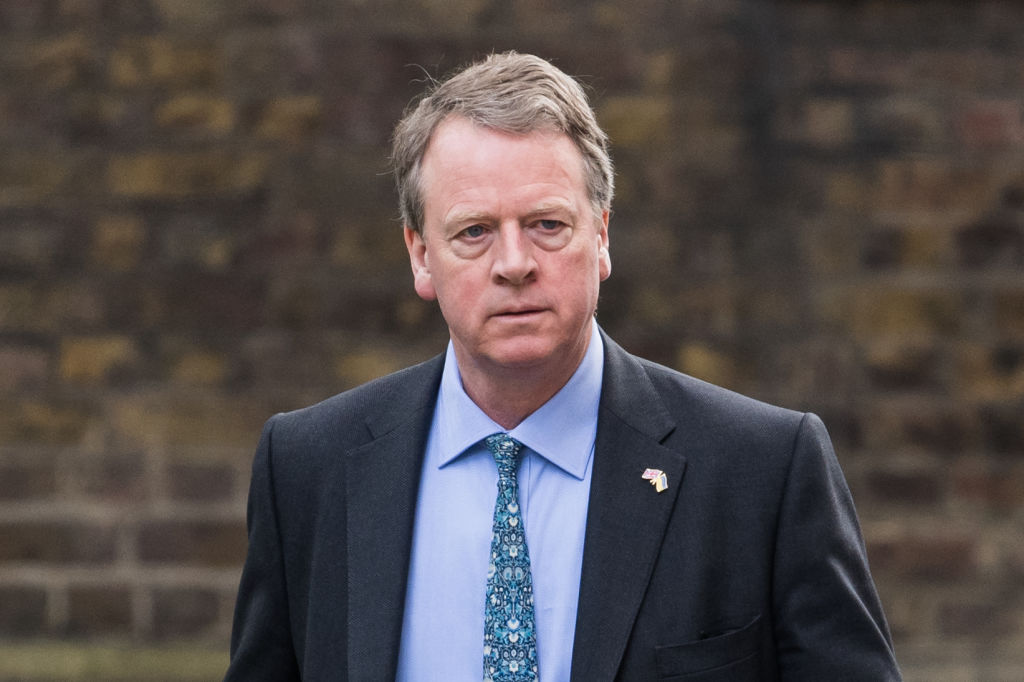Nicola Sturgeon will take Tories to court over Scottish gender reform block

Nicola Sturgeon’s SNP passed the Gender Recognition Reform Bill, only for Westminster to block it. (Getty)
Nicola Sturgeon has said a legal challenge against the UK government over Scotland’s gender recognition reform bill is “inevitable”.
There was a huge outcry when Scottish secretary Alister Jack announced on Monday (16 January) that the government will invoke Section 35 of the Scotland Act to stop the country’s gender recognition reforms from going for royal assent.
The bill would have made it easier for trans people to obtain a gender recognition certificate, used to change legal sex on birth, marriage and death certificates, by removing the requirement for a medical diagnosis and lowering the age limit to 16 among other measures.
Sturgeon told the BBC on Tuesday that her government will likely seek a judicial review.
“In doing so we will be vigorously defending something else, and that is the institution of the Scottish Parliament and the ability of MSPs, democratically elected, to legislate in areas of our competence,” she said.
“In short, we’ll be defending Scottish democracy”.
She noted that because of the way the Tories have acted to block the bill, a legal challenge is more likely to appear before the Court of Session in Edinburgh, and that it wouldn’t automatically go before the Supreme Court.
Jolyon Maugham, a barrister and founder of the Good Law Project, told PinkNews a legal challenge isn’t only “inevitable” – it would be “by no means hopeless”.

Maugham believes a legal challenge will likely make its way to the Supreme Court because the outcome will have “very profound effects on the nature of the devolution settlement”.
“It basically asks fairly profound questions about what the competence is of the Scottish parliament in respect of matters that are reserved matters,” Maugham said.
In a statement, Alister Jack said the Scottish government could choose to bring “an amended bill back for reconsideration in the Scottish parliament” – but Scottish social justice secretary Shona Robison rubbished the idea on the Today programme.
“Using the Section 35 nuclear option, I think, reveals that they don’t have a legal basis to challenge it, and this is more about the politics than it is about the legislation,” said Robison.
Maugham says that even in the “unlikely scenario” that the Scottish government decides not to bring a legal challenge, “somebody else almost certainly would”.
Trying to predict the outcome would be “a mug’s game”, he added, but such a case would “by no means be frivolous or hopeless”.
In fact, Maugham was “surprised” the UK government decided to use Section 35 to block the bill because such action would inevitably be “vulnerable to a legal challenge”.
“The legislation doesn’t have profound effects for equalities law,” Magham said.
“It doesn’t create any new sets of rights; it makes an existing set of rights somewhat easier to access for a relatively small number of people and slightly expands the class of people who are entitled to those rights.
“The notion that there’s any profound change to the architecture of equalities legislation, which is what you’d expect to see before Alistair Jack introduces legislative power to issue the decision that he has, it’s just not really there. There is no profound change.”
Government blocking Scotland gender recognition reform shows how far UK has drifted to the right
The real impact of the Scottish bill is “quite modest”, according to Maugham. In fact, the Tories supported similar measures for the entire UK just a few years ago under Theresa May.
“Five years ago most of what is in this Scottish legislation was utterly orthodox in the Conservative Party,” Maugham said.
“Theresa May said she was going to do it… Labour backed it as well, and now we find ourselves having moved an awfully long way to the right where a proper patriarch like Sunak finds these measures objectionable and Keir Starmer seems to be, as is so often the case, following Sunak.
“I do think it’s worth observing quite how profoundly the Overton window in the United Kingdom has moved to the right when it comes to trans issues in the last five years.”
As far as Maugham sees it, the decision to block the bill has little to do with the content of the legislation and more to do with political posturing.
“It’s a bold commentator who says that any of this is a function of the change made to the law. It’s quite clear to me all about, and purely about, politics.”

